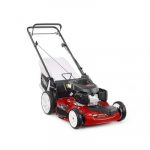Environmental sustainability has become more important than ever before, and organic fertilizers are one of the easiest ways of improving your carbon footprint. Not only are organic fertilizers every bit as effective (if not more) than inorganic ones, but they are cheaper as well. A while back, we explained how you can make your own compost pile, and this is certainly the most common form of organic fertilizer. In addition to compost, however, there are several other forms of organic fertilizer that all work effectively for your lawn and garden. Below, we explain each of them, and the nutrients they offer to stimulate plant growth.
Benefits of organic fertilizers
The main advantage of using organic fertilizers is that they are not immediately ingested by plants. This is because organic fertilizers must first be processed by the soil and into forms that the plants can then absorb. Where inorganic fertilizers have a tendency to overload the plant with nutrients, organic fertilizers release the nutrients at a slower pace that is more effectively absorbed by the plant. There is a more even distribution of nutrients, and there is no release of harmful chemicals—this makes organic fertilizers especially handy in areas where there are lots of children or pets.
Rock minerals and meal
Rock minerals are unlike the other forms of organic fertilizers in that they do not stem from plant or animal sources. Still, minerals offer great nutrients, including rock phosphate and sulfate of potash magnesium.
Meal refers to agricultural byproduct culled from the meat. The minerals offered by meal are different from those of rock minerals and include nitrogen and iron (found in blood meal) and nitrogen and phosphorous (found in bone meal.)
Marine byproduct
Marine byproduct is similar to meal but refers to fish sources. Marine byproducts are a great source of nitrogen. There are many forms of marine byproduct, including ground fish that has been decomposed, fish scrap, and even seaweed extracts. One note, however, is that marine byproduct is not always as readily available as some of the other forms of organic fertilizer.
Manure
Manure may not be as common as compost, but it is among the most common of the organic fertilizers. Where compost refers to decomposed plant material, manure refers to excrement coming from livestock animals. One note is that it is necessary to apply manure at least 60 days before the harvest in order to avoid suffering from bacteria associated with manure.
Mulch
Mulch is another common organic fertilizer, referring to grass clippings. Many lawn owners apply mulch on an annual basis in order to improve soil and irrigation.
Organic fertilizers are an easy, cost-efficient way of supplying nutrients to your lawn. Whether you use compost or manure, by using organic fertilizers you make it easier for your plants to absorb the nutrients they need and grow successfully.







